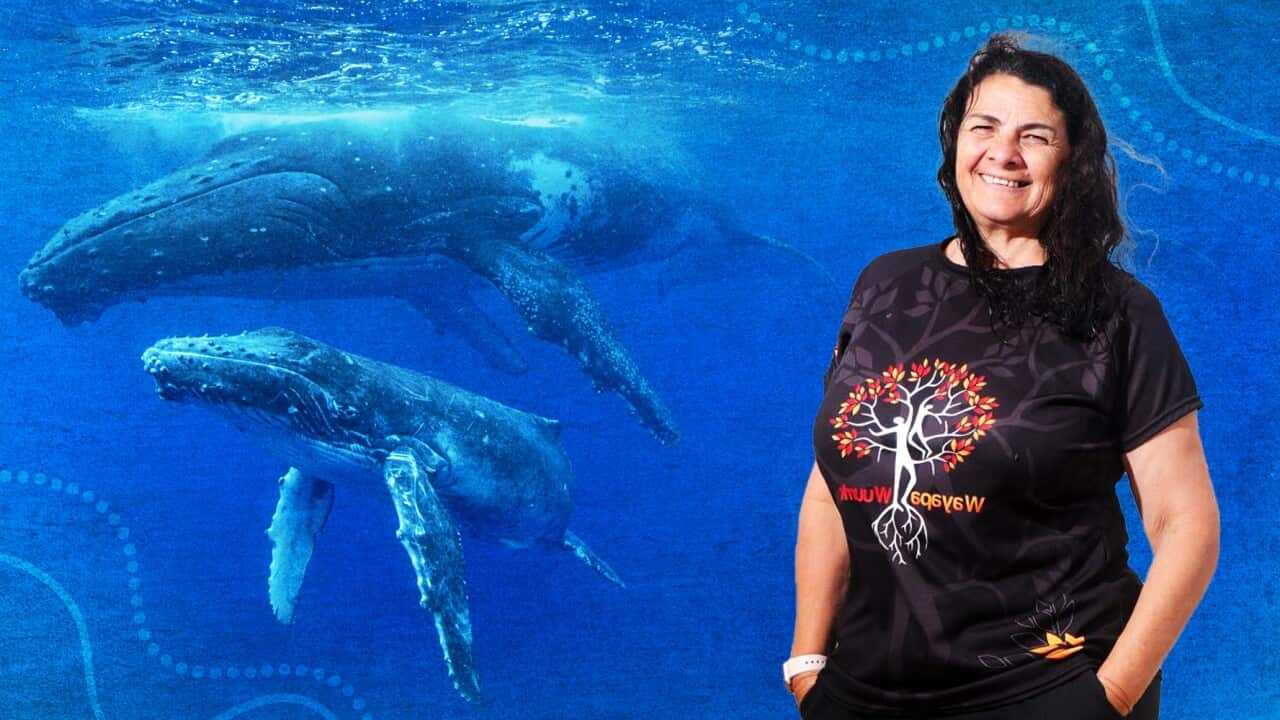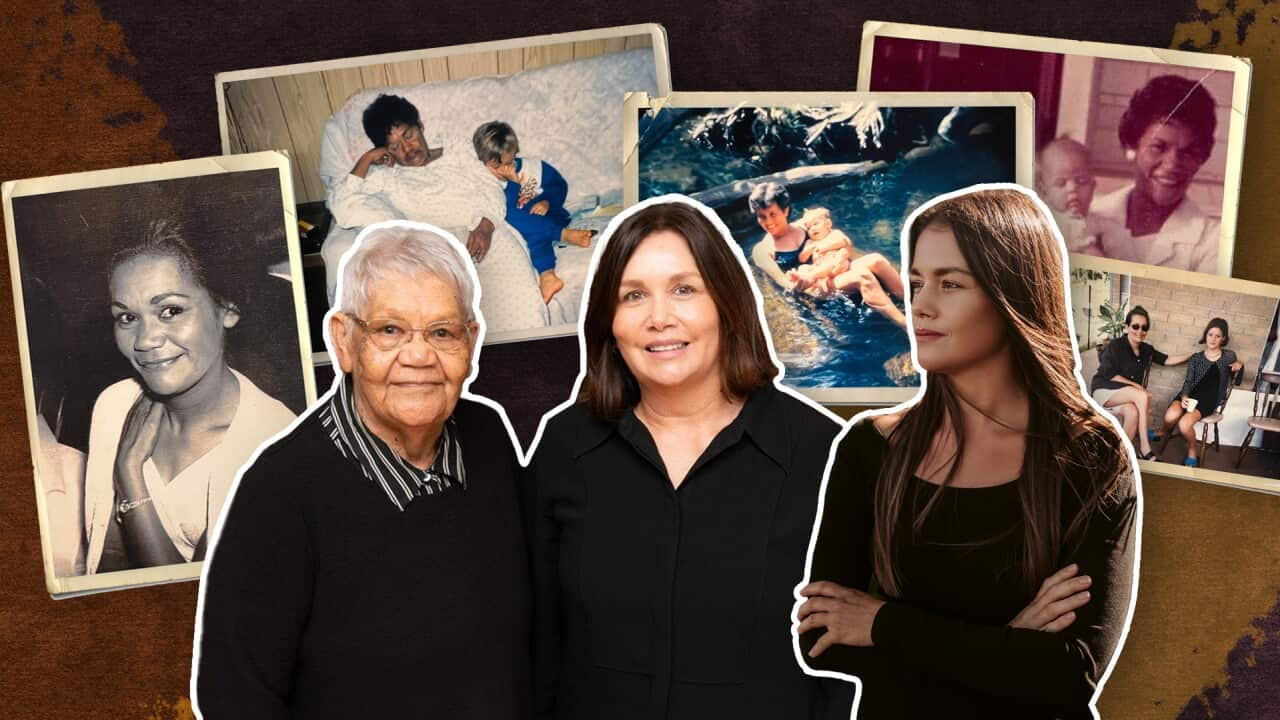As a girl, Dr Aunty Jodi Edward's father taught her about her people's connection to the sea.
She learnt about their fishing practices along the south coast of NSW.
He taught her how to swim in the sea, how to dolphin dive down beneath the waves, and how to open her eyes and breathe under the salt water.
As she grew, the Yuin/Dharawal woman didn't think much of the sea and the stories she was told.
But, when her father got sick, she stepped away from work to care for him.
During this time she started to trek through old stories they'd shared, learning more about her people, and her cultural kinship.
It was then Aunty Jodi realised their family connection to the Orca.
"We, the women, when we pass we go into the sea and become the Lore people of the sea," Aunty Jodi said.
"I started to properly research and I found out that on the far south coast, women would become the Orca.
"We would be given the privilege by the creator to be sea people, to give back to our community, to land people."

Aunty Jodi has a cultural connection to the Orca, and will be tracking their migration patterns as part of her research. Credit: Serge Melesan/Getty Images/500px
For thousands of years, stories have been told of Orcas rounding up sick whales and fish, and herding them into the bay for capture.
"The real penny dropper for me was when I realised that Orca whales never kick their babies out. Babies can stay with them as long as they want - which is us, Aboriginal women," Aunty Jodi said.
"Our home is always our children's home. They can go and live their lives, get married, have their own family, but when they're stressed or need to come home, we are always there.
"Also, Orcas are the only other mammal that goes through menopause!"
The more research she did, the more Aunty Jodi realised that current research on whale migration fails to incorporate Aboriginal knowledge.
"I realised that nobody has actually done cultural mapping through an Indigenous lens, and certainly not an Indigenous woman's lens," she said.
"I started to look at old grand applications, and realised that lots of non-Aboriginal people had said they're going to 'talk to Aboriginal people" but the extent of that was giving the project an Aboriginal name."
So, she set out to do it herself, the right way.
Leading research through an Indigenous lens
She will lead the 'Unbroken Whispers' project, which focuses on collecting Indigenous knowledge about the Southern Right Whale, the Humpback Whale, Orcas and Dolphins.
Her research will examine long-term migratory patterns, habitats and relationships of the species and inform conservation and protection efforts.
The research project is partly funded by the Australian Government through the National Environmental Science Program’s Marine and Coastal Hub and will run from 2024 to 2026.

Labor Member for Cunningham Alison Byrnes, Federal Minister for Environment and Water Tanya Plibersek, Dr Aunty Jodi Edwards and Assistant Treasurer and Minister for Financial Services. Stephen Jones. Credit: University of Wollongong
The Minister said there are "65,000 years of continuous conservation knowledge" governments can learn from.
"First Nations Australians have cared for land and sea country for generations and are crucial in our fight to better protect our environment and the precious creatures who live in it," she said.
"We know many marine species are under threat from things like habitat loss, pollution and climate change. Projects like this may be the key to how we effectively protect and recover declining populations."
Aunty Jodi and her team will track the whale migration along the east coast, following their journey and stopping into communities along the coastline.
"There will be times when the whales deep dive and won't surface for a few days and we'll do the same in our research," Aunty Jodi explained.
Aware of the immense emotional and cultural load on, not only the team but on the communities and Elders sharing, they've established psychological support for those involved.
"We're going into communities and what we're asking and hearing about will be emotional," Aunty Jodi said.

Labor MP Alison Byrnes, Environment Minister Tanya Plibersek, Dr Aunty Jodi Edwards and Assistant Treasurer Stephen Jones during a meeting. Source: Supplied / University of Wollongong
"They're going to be emotionally affected when we leave, so we're setting up a process that allows them to access trained people for a yarn before, during and after the project."
Aunty Jodi also has ensured that the project is led the right way.
"We also want to set things up in each community, we don't want to drop in and then leave . . . We want to utilise resources in each community from support to videographers or photographers," she said.
"Other research jumps in and out but that's not our way. We want to stay in the community for some time, create employment opportunities, help restore Eldership, and have kids access that knowledge."
This project is just the start for Aunty Jodi, who hopes that if it's successful, she can expand to other parts of the nation's coastline and make real change for her people, and her whales.















